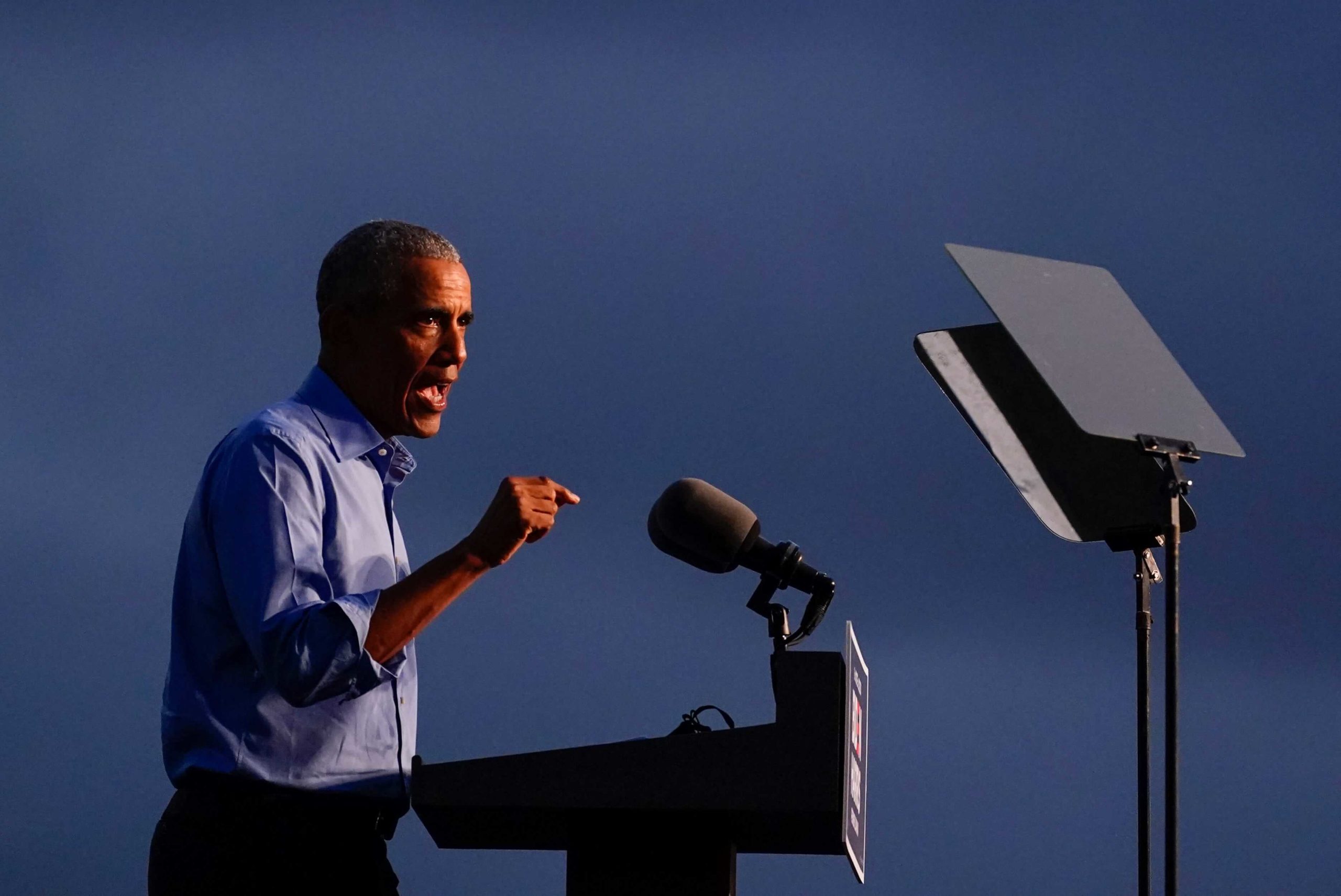
Barack Obama recalls dealing with a global pandemic, facing racist comments in first memoir excerpt
Former President Barack Obama returns to Philadelphia for his first in-person 2020 campaign event for Joe Biden. (Oct. 21) AP Domestic
From the early days of his presidency, Barack Obama was well-aware of criticisms – political or personal – that others had against him. But the former president did not think it was appropriate for a leader to publicly complain about those who did not support him.
In the first excerpt released Monday in The New Yorker from his upcoming presidential memoir, “A Promised Land,” due Nov. 17, Obama, 59, recalled his early days in the White House, publicly negotiating to pass what would eventually become the Affordable Care Act while more privately dealing with a pandemic and experiencing resentment and racist comments from fellow politicians and other Americans.
In 2009 when the H1N1 virus, more commonly known as the swine flu, turned into a global pandemic, Obama pulled together a team to help evaluate the United States’ preparedness for such an event. He was advised to be involved in the process, but to follow the lead of medical experts.
“I had more than a passing knowledge of H1N1 after working on U.S. pandemic preparedness when I was in the Senate,” he recalled. “What I knew scared the hell out of me.”
Scientists found that the U.S. was not, in fact, prepared for a pandemic, he wrote. While the White House team weighed means of distributing medications, hospital guidelines and the “possibility of closing schools and imposing quarantines if things got significantly worse,” former members of President Gerald Ford’s 1976 swine flu response team warned Obama’s team “of the difficulties involved in getting out in front of an outbreak without overreacting or triggering a panic.
“Apparently, President Ford, wanting to act decisively in the middle of a re-election campaign, had fast-tracked vaccinations before the severity of the pandemic had been determined, with the result that more Americans developed a neurological disorder connected to the vaccine than died from the flu,” Obama wrote.
He continued: “My instructions to the public-health team were simple: decisions would be made based on the best available science, and we were going to explain to the public each step of our response—including detailing what we did and didn’t know. Over the course of the next six months, we did exactly that. A summertime dip in H1N1 cases gave the team time to work with drugmakers and incentivize new processes for quicker vaccine production. They pre-positioned medical supplies across regions and gave hospitals increased flexibility to manage a surge in flu cases. They evaluated—and ultimately rejected—the idea of closing schools for the rest of the year, but worked with school districts, businesses, and state and local officials to make sure that everyone had the resources they needed to respond in the event of an outbreak.”
Mourning the more than 12,000 Americans who died from the swine flu, Obama expressed gratitude that the disease did not end up more deadly, as experts had initially feared.
“News that the pandemic had abated by mid-2010 didn’t generate headlines,” he wrote. “Still, I took great pride in how well our team had performed. Without fanfare or fuss, they not only helped keep the virus contained but strengthened our readiness for any future public-health emergency—which would make all the difference several years later, when the Ebola outbreak in West Africa triggered a full-blown panic. This, I was coming to realize, was the nature of the Presidency: sometimes your most important work involved the stuff nobody noticed.”
Around the same time, Obama recalled, it became “hard to ignore” some “troubling impulses” seen from the Tea Party, some supporters of whom compared Obama “to animals or Hitler.”
He added: “Conspiracy theories abounded: that my health-care bill would set up ‘death panels’ to evaluate whether people deserved treatment, clearing the way for ‘government-encouraged euthanasia,’ or that it would benefit illegal immigrants, in the service of my larger goal of flooding the country with welfare-dependent, reliably Democratic voters. The Tea Party also resurrected an old rumor from the campaign: that I was not only Muslim but had actually been born in Kenya, and was therefore constitutionally barred from serving as President.”

